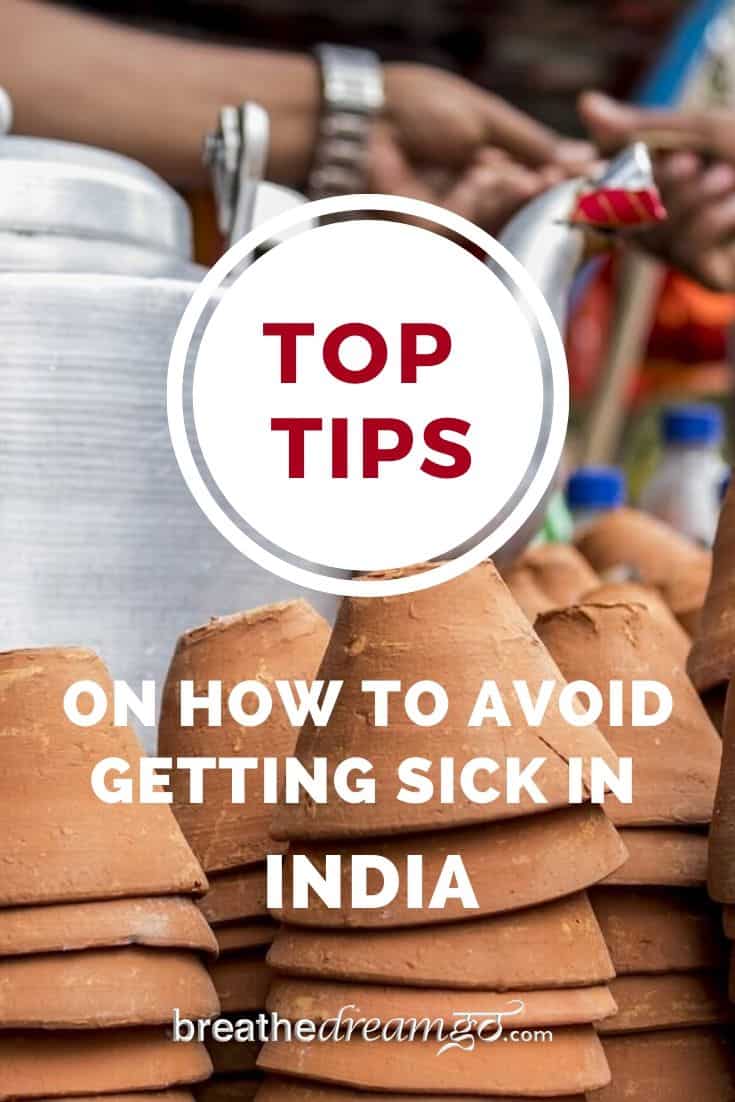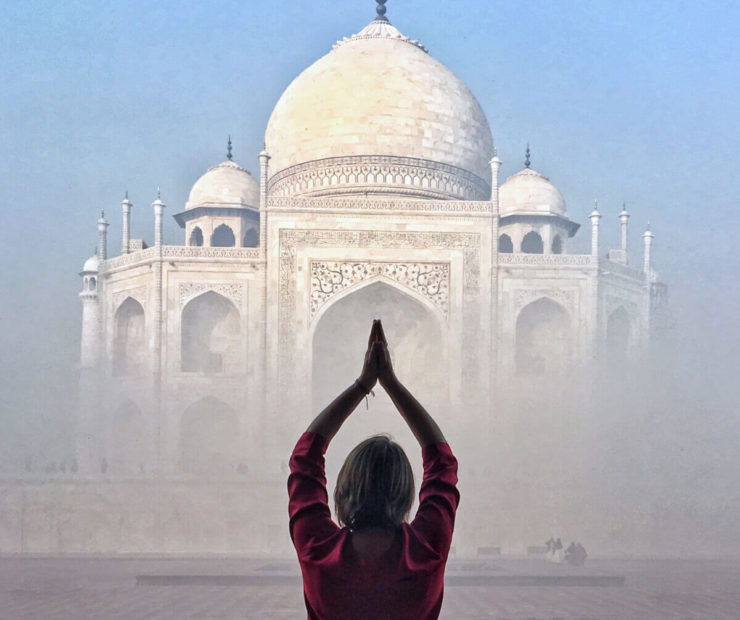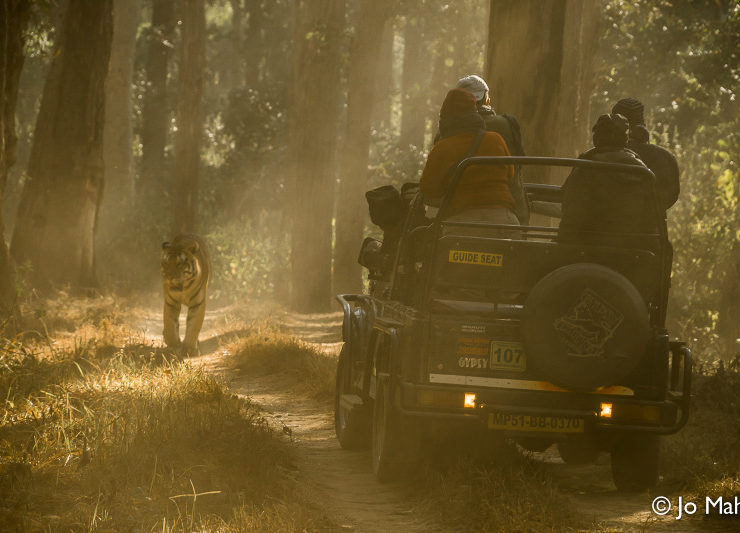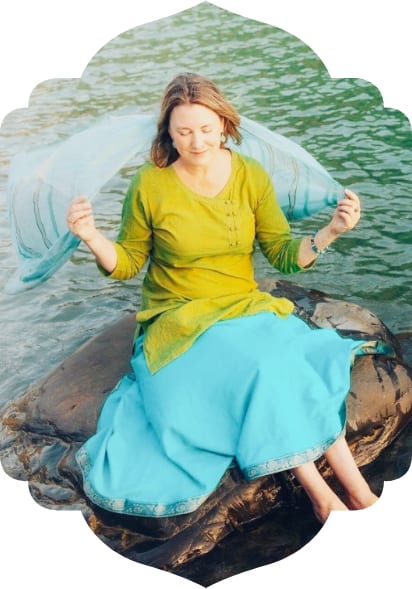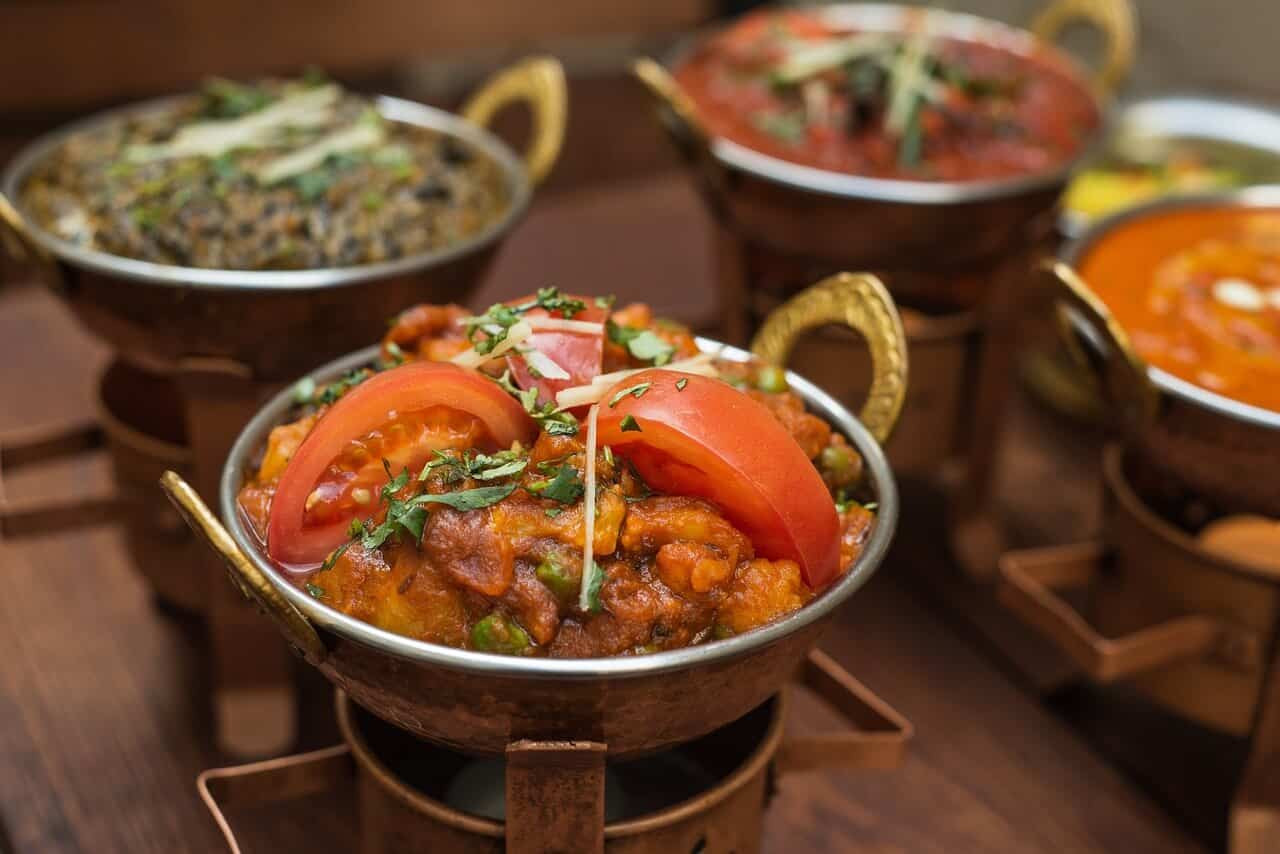
Table of Contents
How not to get sick while traveling in India
TRAVEL IN INDIA, and in so many other places, definitely has its challenges. But that’s no reason not to go. In fact, it often seems the greater the challenge, the greater the reward! One of the biggest fears a lot of people have about traveling in a so-called ‘developing’ nation or region like India (or Thailand, Africa, and Southeast Asia) is getting sick. There are many things you can do to avoid getting sick while traveling in India.
Over many years of experience, I’ve learned how to help prevent travel sickness, how to help prevent and cure travelers diarrhea aka Delhi Belly, what foods to eat and what foods to avoid, what medicines to take, and generally how to stay healthy in India and while traveling in Asia — and I’ve rounded up all my best tips in this post including My top 10 tips on how to avoid getting sick in India (see below).
My own experience is that there’s usually nothing to fear but fear itself. A positive attitude, a healthy immune system, and liberal doses of resilience, resourcefulness, caution, and common sense are usually enough to get most travelers through most situations. But here are some tips that I’ve discovered for preventing and coping with the most common issues travelers face in India such as travelers diarrhea.
DISCLAIMER: The information on this site is not a substitute for qualified, professional medical advice. Always seek the advice of your physician or other qualified health provider. Never disregard professional medical advice because of something you have read on this website. Visitors who use this site and rely on any information do so at their own risk.
Top 10 tips to prevent getting sick in India and to stay healthy on the road
- Visit a travel medical clinic and get the appropriate vaccinations and recommendations.
- Drink only safe water such as RO (reverse osmosis) filtered water or bottled water.
- Eat only freshly cooked foods. Avoid raw foods and fruit that can’t be peeled. Watch for water in ice and sauces. Don’t eat food that’s been sitting around, especially outdoors.
- Avoid mosquito bites. Mosquitoes in India can carry malaria and dengue and other infections. Use DEET.
- Take Travelan 48 hours before you start traveling, and before each meal during your trip.
- Take shelf-stable probiotics every day, or eat home-made yogurt.
- Stay hydrated and wear a hat or scarf to prevent sunstroke, which is all too common in India.
- Dress appropriately for both the culture and the weather. Loose, flowing, cotton clothing is ideal for the heat and the need for modesty. Read more about What to wear in India here.
- Wear comfortable shoes
- Bring your own medications.
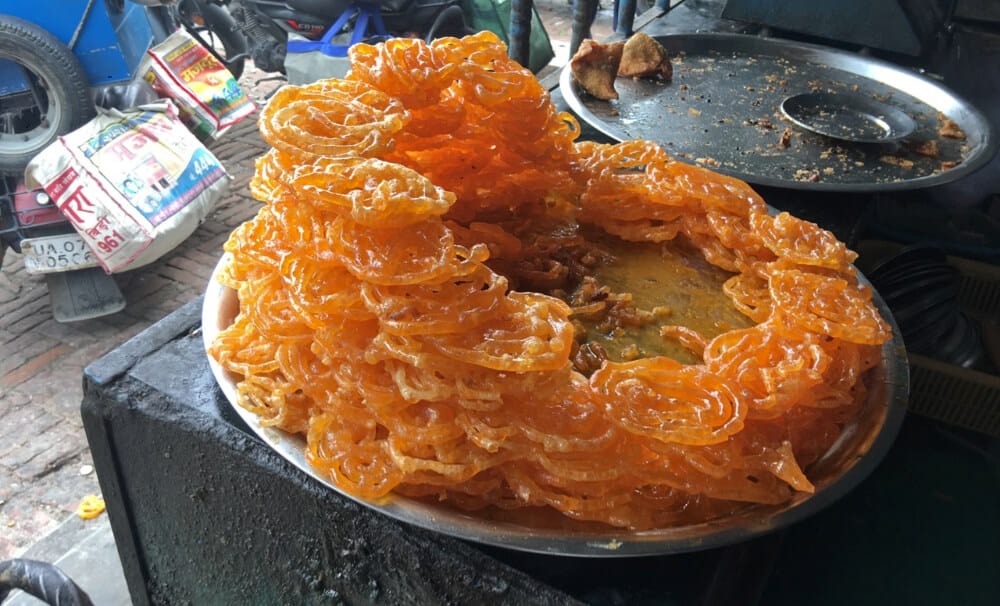
How can I avoid getting sick in India?
The main health related issues you could face in India are:
- travelers diarrhea (locally known as Delhi Belly)
- dengue and other vector borne diseases
- rabies from dog bites, monkey scratches, or other animals
- typhoid, hepatitis, and tetanus
Most of this post is about preventing and managing travelers diarrhea and Delhi Belly, which is by far the most common illness travelers face in India. However, I also want to underline the importance of preventing dengue and other vector borne diseases such as malaria by wearing long sleeves and pants, and using a mosquito repellent that contains DEET. Most hotel rooms also have plug-in devices to prevent mosquitoes, so I highly recommend using them. There are no vaccines for dengue, which is common in India, so preventing mosquito bites is the best strategy.
Rabies is a very serious disease that can result in death if not treated, so if you are bitten or scratched by an animal in India, you must seek treatment immediately, within 24 hours. You will need to get a course of shots over several days. There is a rabies vaccine, but you still need to get treated with shots if you are bitten or scratched, so most people don’t bother with the vaccine.
Other potential diseases such as typhoid, hepatitis, and tetanus can be prevented by vaccine. I recommend visiting a travel medical clinic to find out what you need for India at the time you are going.
If you are getting travel vaccinations for the first time, you really have to start early. Visit a travel medical clinic to find out what’s recommended. Start getting your vaccines three months before you depart. The first time I went to India, I needed several vaccinations, including Twinrix (for hepatitis A and B). Thank goodness I started getting my vaccinations early because I ended up needing four shots of Twinrix before it “took!”
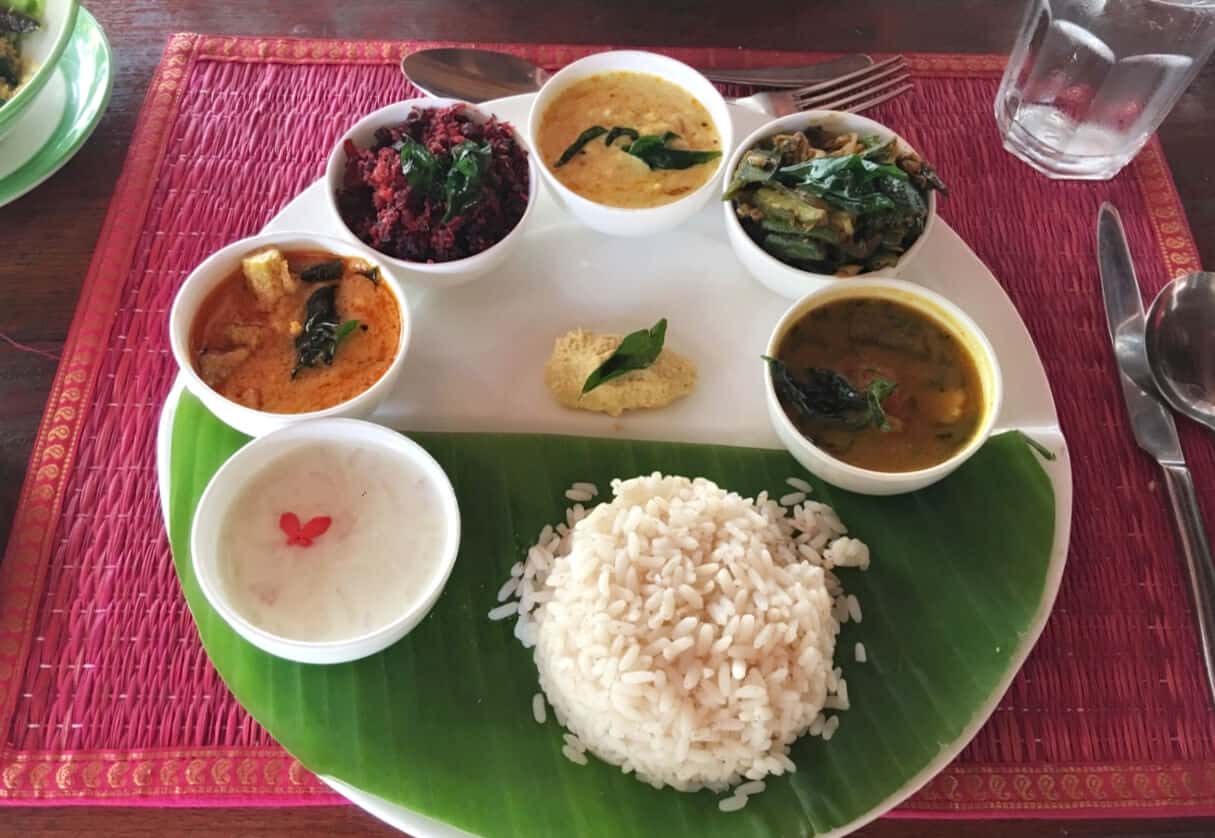
How can I prevent travelers diarrhea and stay healthy in India?
When I first went to India, I had never been on a long-term trip, and never to anywhere like India. Unfortunately, a visit to the travel medical clinic scared me into worrying about all kinds of potential disasters, and I arrived in Delhi with half-a-suitcase of medical supplies. My hosts, an Indian family, laughed. It was as if I was going into the deepest darkest jungle — instead of a sophisticated city with state-of-the-art modern medical clinics.
Now, I have pared that bag down considerably. I have come to realize that not only can I get almost everything I need in India, but it will be cheaper and more suited to the conditions there.
Ultimately traveling will always have risks involved that usually include being ill or sick. If you are careful, mindful and sensible about the food, and do some research, you can still be adventurous.
As I mentioned above, travelers diarrhea or Delhi Belly is the most common sickness a traveler might face in India. Statistics show that travellers’ diarrhea is the leading health problem in international travel affecting up to 70% of travellers. It is hard to avoid completely but there are many steps you can take to help prevent getting sick in India.
The first step is to prepare your immune system with a positive attitude and lifestyle, to make yourself healthy for travel. There is no substitute for a strong immune system, plus using common sense when you travel. You also need to learn what medications and supplements to take and also what foods and drinks to avoid in India.
Through many years of trial-and-error, here is what I have learned and what I carry with me to prevent getting sick in India.
NOTE: This site, Fit for Travel, is a great resource for travellers, with lots of advice and information. It has a section on Travelling with Medicines and here’s a malaria map of India.
Travel Probiotics
Shelf-stable travel probiotics are one of the best things you can take while traveling. I especially like to start about a week before leaving, and then I take one every day for the first few weeks. I also supplement by eating home-made yogurt (known as curd in India), which is full of healthy probiotics. This is my number 1 suggestion!
Travelan
Travelan is an over the counter medication available in pharmacies across Canada. Travelan helps to stop travelers diarrhea before it starts, whereas anti-diarrheal products simply relieve symptoms once you are ill. The Travelan antibodies lay in wait in the gastrointestinal tract, neutralizing any incoming bacteria and inhibiting them from their attachment to the intestinal tract, essentially reducing the risk of becoming infected with bacteria that can cause travelers diarhhea.
Clinical studies have proven Travelan can reduce the risk of infection and provide up to 90% protection from travelers diarrhea. In Australia, Travelan is also indicated to reduce the symptoms of minor gastrointestinal disorders. Take one or two caplets before each meal, three times per day, starting 48 hours before travel and during the period of travel.
Travel Medical Kit
Here’s what’s in my travel medical kit and what I recommend. If do need a stronger medication, such as antibiotics, I seek medical attention and take what they recommend. Local doctors know the best antibiotics and remedies for their region.
- Number one is ORS (oral rehydration salts). This is the ONE thing you are likely to use, and I always carry a few packets with me. If you do get travelers diarrhea, drinking ORS mixed with safe, clean water is the BEST thing you can do. I usually find one day of rest and about five litres of water mixed with five packets or ORS completely cures me. You can get ORS anywhere, in any pharmacy or chemist.
- GSE (grapefruit seed extract) or oil of oregano to help build immune system health.
- Activated charcoal capsules. If you do get sick, take several activated charcoal capsules immediately and then every few hours for the first day. It will absorb any toxins in your gut.
- Homeopathic remedies: arnica, nux vomica, apis, arsenicum album, carbo vegetalis.
- Bach Flower Remedies: Rescue Remedy
- No Jet Lag
- Pepto Bismal
- Mosquito repellent with DEET
More reading on Breathedreamgo about what to pack, what to bring, and staying healthy:
- Packing list for India
- Travel essentials packing list for Asia
- Best responsible travel products
- How to use the toilet in India and use water instead of toilet paper
- Boost your immune system and stay healthy with Yoga
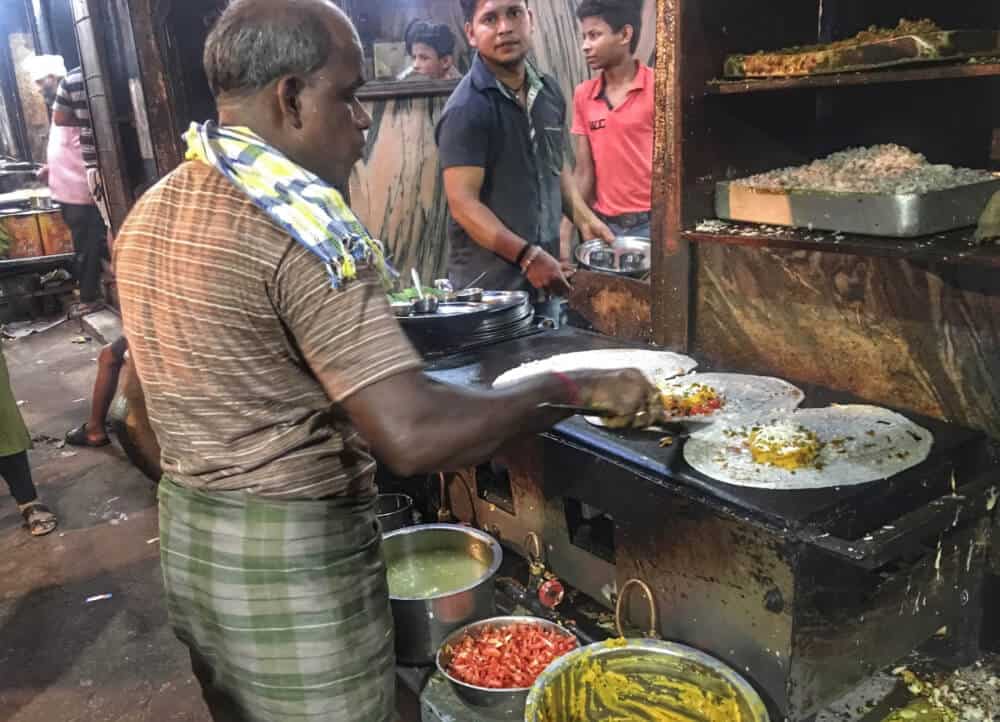
What food should I avoid in India?
Everyone knows the food in India is spectacular. Do not avoid it just because you are fearful of getting sick. You can easily prevent illness. Eating vegetarian is highly recommended. If you must eat meat, chicken and mutton (goat) are the meats you will most likely find on menus (as cows are sacred and pigs are considered unclean). Luckily, the vegetarian food in India is spectacular and you will probably not miss meat.
In places like Mumbai, Goa, Kerala, and West Bengal — which are all coastal — you will find fish and seafood on the menu, too. Generally I would avoid shellfish, and stick to freshly caught fish.
If you are a Celiac or need to avoid gluten, check out this Gluten Free Travel Guide to North India from Legal Nomads.
To avoid getting sick in India, and in many other places, it’s really the water you have to watch. Be very careful about the water you drink, and also the water used in ice cubes, drinks and some food preparations. You also have to remember to keep your mouth closed in the shower and brush your teeth with filtered water.
Drink only safe water such as RO (reverse osmosis) filtered water. Carry your own reusable bottle and refill with RO water. You can find this water almost everywhere. Otherwise, carry a water bottle with a filter or Steripen — read this post on responsible travel products for suggestions and reviews. As a last resort, use bottled water that is properly sealed.
There are no guarantees about avoiding bacteria in food. You can eat street food and feel fine; and then eat at a five-star hotel and get sick (a lack of continuous power and spotty refrigeration is often the culprit). Make sure the food is fresh or freshly prepared, don’t eat raw foods (such as salads) or fruit, unless you’ve peeled it or washed it in a bacteria-killing solution.
Take a food tour in India
You can take food tours all over India, but Delhi is a great place to start. Delhi is the culinary capital of India. Read about the most famous foods of Delhi here and India’s top 20 most popular foods. Taking a culinary, or food tour of Delhi, is by far the best way to get to know the local favourites, the insider secrets, and the best foods at the best prices. I have done it myself and I highly recommend it. My company India for Beginners custom tours can arrange food tours in India and all across the country.
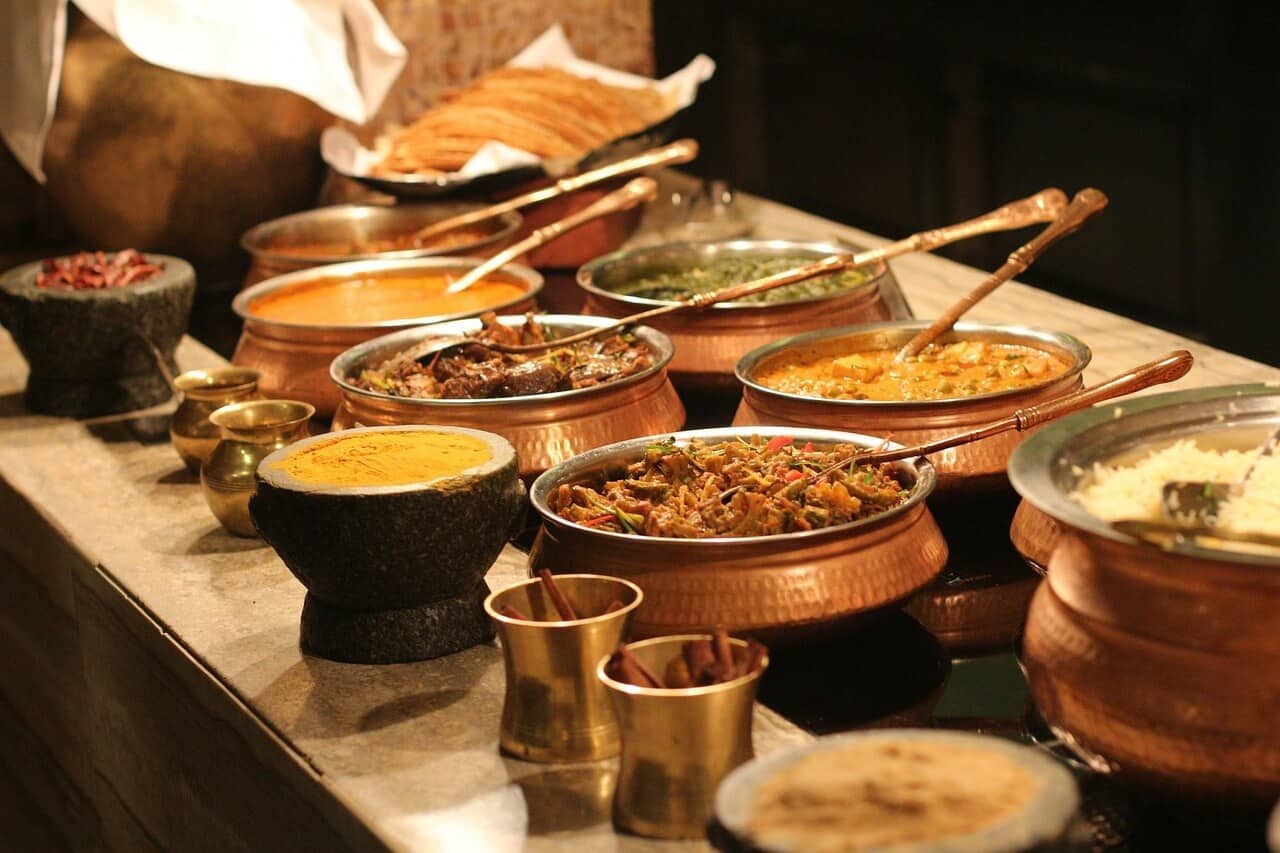
What to do if you get sick in India?
If you get tummy trouble, travelers diarrhea or Delhi Belly, the best thing you can do is rest and drink ORS mixed with fresh, clean, safe water. Drink about 1 litre every two-three hours for the first day. Usually, you will be fine by the next day.
Foods to eat when you’re sick include weak tea, ginger tea, fruit juice, rice, toast, yogurt, bananas, apple sauce, plain noodles.
If your symptoms include vomiting, fever, rash, or continue for more than two-three days, you should seek medical attention.
If you have any of the symptoms of dengue fever, or if you have been bitten or scratched by an animal, you should seek medical attention immediately, within 24 hours and the sooner the better.
NOTE: This post is brought to you by Travelan, a medication designed to help reduce the risk of travelers’ diarrhea.
Pin it on Pinterest
Pixabay image credits:
Chai image by Shantanu Kashyap from Pixabay
Indian buffet image by PublicDomainPictures from Pixabay
Indian food image by ArtificialOG from Pixabay
If you enjoyed this post, you can….
Sign up to The Travel Newsletter in the sidebar and follow Breathedreamgo on all social media platforms including Instagram, TripAdvisor, Facebook, Pinterest, and Twitter. Thank you!


